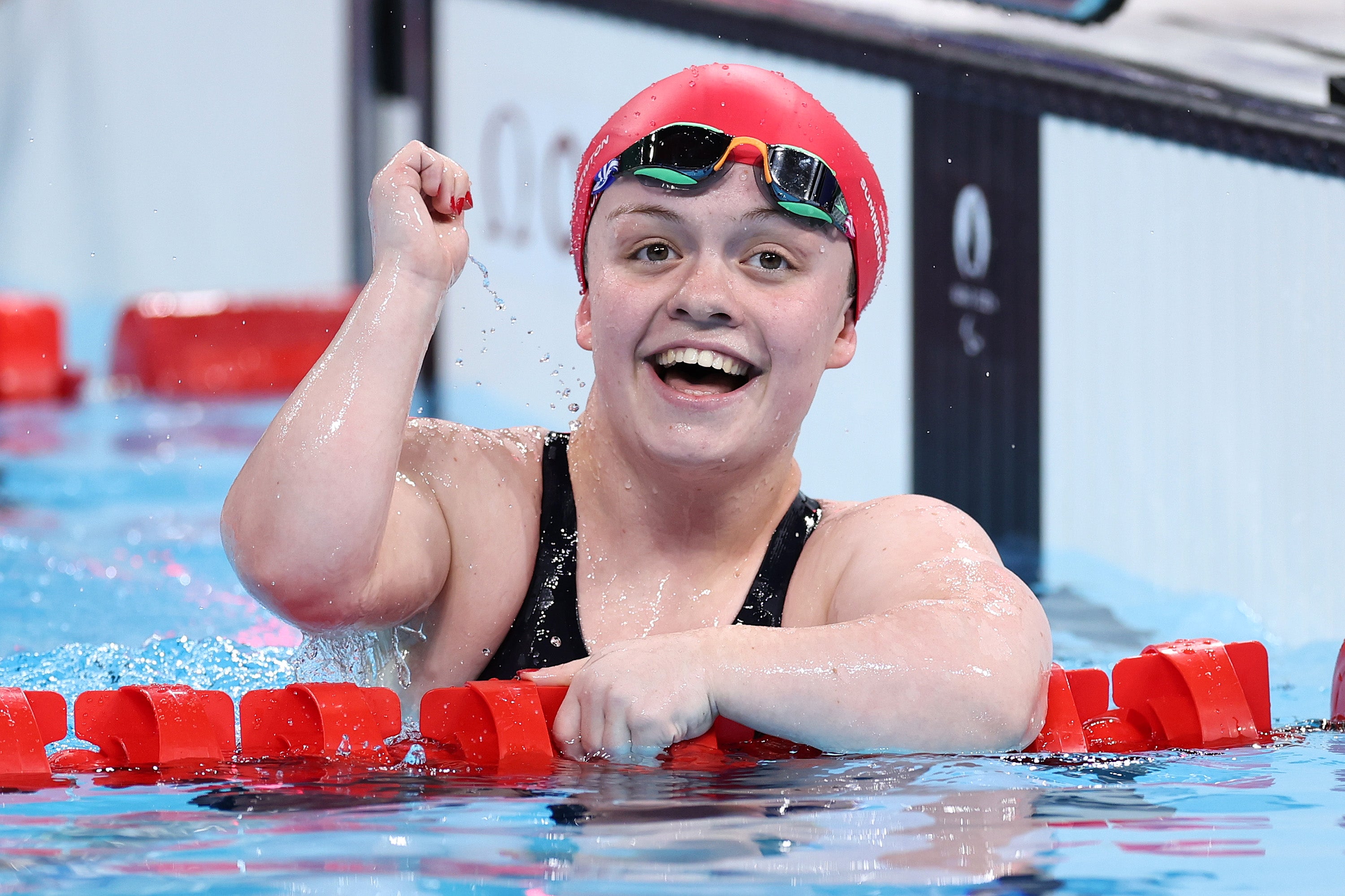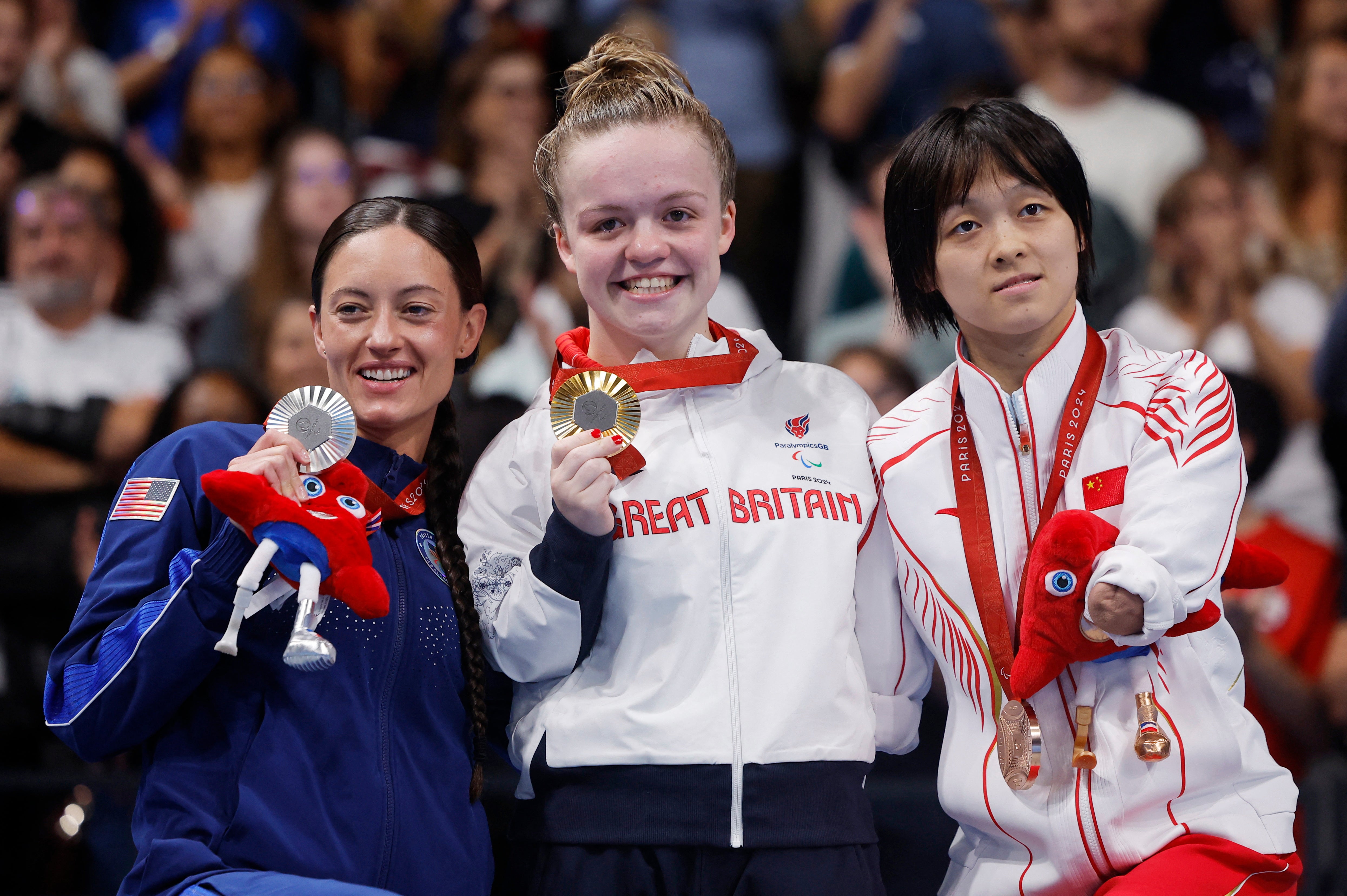[ad_1]
Support truly
independent journalism
Our mission is to deliver unbiased, fact-based reporting that holds power to account and exposes the truth.
Whether $5 or $50, every contribution counts.
Support us to deliver journalism without an agenda.

There is no textbook for dealing with teenage sporting stardom, but Maisie Summers-Newton is as qualified as anyone to write it.
The swimmer was thrust into the spotlight as a 19-year-old just as her idol Ellie Simmonds was leaving it, making for an awkward dynamic as she won gold in Tokyo.
Now 22, she has spent the last three years stewing on the defence of her 200m individual medley title, all while becoming the face of British para swimming.
“I have a lot of self-doubt,” said Summers-Newton, who is one of over 1,000 elite athletes on UK Sport’s National Lottery-funded World Class Programme, allowing them to train full time, have access to the world’s best coaches and benefit from pioneering medical support – which has been vital on their pathway to the Paris 2024 Games.
“I think that’s something that has come since Tokyo, there’s a lot of pressure being Paralympic champion and then defending it. I just put so much pressure on myself.”

At least to those in the stands at La Defense Arena, Summers-Newton need not have worried.
She was behind after the butterfly and backstroke legs but that was all part of the plan as she used her breaststroke strength to surge clear and claim victory by 5.60 seconds.
“When I got in, I could see how close I was to some of the girls, they are usually ahead of me on the fly and the back,” said Summers-Newton.
“On the backstroke, I was like ‘you’re in a really good place here’. I just can’t believe it and it has been such a good three years since Tokyo.”
Summers-Newton has spent those three years building her self-worth outside of the pool: a shining example for a generation hothoused in the world of elite sport.
She has qualified as a teacher and finished her last placement at Bridgewater Primary School in March.
“That is something I really had to work hard for,” said Summers-Newton. “Swimming comes naturally but writing assignments, going into schools, and teaching for eight weeks, it was tough, and I made some incredible memories.
“I think it’s allowed me to have a side of me where I don’t have to think about swimming 24 hours a day.”
Summers-Newton has blossomed into the ringleader of the British squad and is directing traffic in the seven-strong flat of female swimmers in the Paralympic Village.
“We’re all so close, my girls, and it’s the best flat ever,” said Summers-Newton. “I’ve definitely become a more senior member of the team.
“We’ve got such young athletes like Poppy [Maskill] and Iona [Winnifrith] coming up and for me, it’s about trying to inspire them and pass on as much knowledge as I can.
“It comes quite naturally to me, and I’d like to think I’m quite a caring, motherly type of person.”
Maskill, Winnifrith and company could wish for no better role model when it comes to coping with pressure.

Summers-Newton has another title to defend in the 100m breaststroke, but the British squad won’t benefit from her leadership indefinitely.
At some point soon, she will swap the pool for the classroom and set about changing another set of lives.
“I can hopefully get a little bit faster,” she said. “I definitely think I’ll have a rest after this Games and we’ll see what happens after that in terms of swimming, but I’m only 22 so hopefully a lot more can come.”
National Lottery players raise more than £30million a week for Good Causes including vital funding into sport – from grassroots to elite. To find out more visit: www.lotterygoodcauses.org.uk
[ad_2]
Source link



